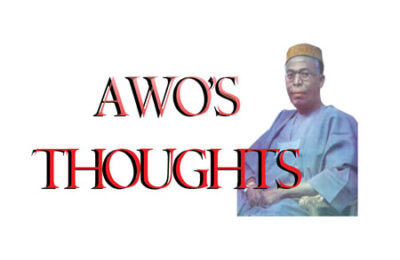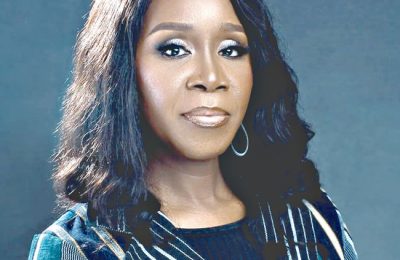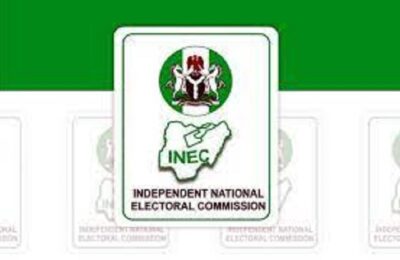
In this interview with Abuja Bureau Chief, LEON USIGBE, Presidential spokesman, Ajuri Ngelale, articulates how President Bola Tinubu is gradually reshaping the country and engendering economic development across board
The President Bola Tinubu administration is one year old. Can you highlight what you think are his most significant achievements within the period?

To begin, His Excellency President Bola Ahmed Tinubu campaigned on the promise that he would implement and embark on reforms that have been delayed, deferred for decades. People of Nigeria understand that this president, on his first days in office, dealt with the reform of fuel subsidy regime, dealt with the reform of financial markets particularly with respect to the unification of the exchange rate and putting an end to the type of incessant and really ravaging round tripping we were seeing within the sphere of the central bank of Nigeria.
But then again, of course, sometime when you stop the bleeding, it’s not seen as an achievement. But there’s a reason why many others refused to do what this president has now done, which is why the president has been roundly commended not just locally but internationally for the reforms he’s put in place. That does not now mean that those reforms have not brought some bit of discomfort and pain to our people. The president has been very aware of this which is why he has embarked upon a broad scope of economic intervention to alleviate the plight of our people. One of such is of course MSME intervention and capitalization, N200 billion put in place for all segments of the business population operating in the country, specifically, N50 billion in grants, not loans. This is not money people will pay back but N50 billion in grant being paid to over one million nano businesses equitably distributed across all local government areas of the federation. Approximately 1299 nano businesses have been given N50,000 grants through that scheme per local government.
In addition to that, you have the remaining N150 billion in the form of single digit interest loan being provided to hundreds of thousands of MSMEs across all states of the federation, again, equitably distributed – 75 billion being given in loans of up to N1 million whereas another 75 billion is being given to large scale manufacturers. These are industries that are employing up to a thousand Nigerians per industry. We are giving them loans, single digit in interest rate with a moratorium of about three to five years at about N1 billion each.
So, the intervention of business has been very important. But I think above all of that, the president has been focused like a laser on infrastructural development. Obviously, when you are investing heavily in infrastructural development, that also means that you are catalysing construction industry, you are catalysing manufacturing industry, you are catalysing the informal economic sectors of the country – the people in basic terms that are supplying sand, that are supplying cement and supplying other implements that are being used on these construction sites across the country. These things are going on right now. Those who benefit from them fully understand that this is as a result of these interventions.
So, I think you put all of that together and then you recognize that the president has been able to put in place the accelerated power performance agreement with Siemens Energy which is dealing with the end-to-end power modernisation of the nation’s power transmission grid to ensure that we are not just enhancing the quality, quantity of power supply, but that we are dealing with quality, a situation in which disadvantaged Nigerians are losing their appliances – microwaves, television sets, refrigerators because of this kind of equivocating power current. You recognise that this thing is actually costly to Nigerian families, and it has to be resolved.
So, sometimes, you would even find that, when you have this kind of equivocating power supply, with the damage that it does to, you know, appliances and the like, and the and obviously, the pocketbooks of our people, what you end up finding is that they actually just want to turn the lights off, they don’t even want to risk their appliances. So, what good is that light if people don’t even want to use it, because it’s destroying their hard-earned technologies? This is a major issue. So, the Siemens deal deals with the issue of quality of supply, ensuring that when Nigerians receive their light, whether it is six hours, 12 hours or 24 hours, that whatever they’re receiving is quality electricity supply. And that’s very important to us.
Again, that’s the traditional power, that is not the off grid power, which the President is very focused on, which is why he’s put in place over $1 billion worth of capital formation and mobilization from multilateral institutions, dealing with the supply of off grid, solar home systems, being dispersed throughout the country, not just in primary health facilities in rural communities, but also in rural farms and the like, trying to cut down on this major problem. We have farmers, for example, losing up to 50% of their produce before it hits the market, simply because they don’t have power to energize cold chain, infrastructure, refrigeration and the like. These are things that we’re working very aggressively with off grid energy sources to resolve. So, that’s just a bit of what His Excellency Mr. President has been able to do. I could go into what he has done on investment.
The President has been talking about attracting foreign investment. Are their specific examples that you can give as the outcome of his effort in this direction?
Absolutely. So, the major investments that we’ve seen, some of them are within even the oil and gas sector. We’ve had major new FID taken on certain deep offshore production contracts that would not have been put in place if he had not, for example, issued the presidential executive orders in the oil and gas sector to really implement what the IOCs and their executives had come to communicate to him where issues and problems and bottlenecks in the sector, he’s removed them with the directives he’s given through the presidential executive orders. In addition to that, the President has been obviously bringing in a lot of solid minerals investment. It was just, I think, less than two weeks ago, when a $200 million lithium processing facility was established in Nasarawa State.
These things are happening because of the reforms and commitment of His Excellency. Mr. President. I think if you look even at what is to come, you would see that in the transportation sector, we have very large-scale multibillion dollar commitments from the Chinese Railway Construction Corporation (CRCC). They were just with the President a few days ago, and they’re willing to scale up their investment to also ensure that we have a rail link, standard gauge rail link between the Lagos-Ibadan rail line and the Federal Capital Territory.
In addition to that, we are working assiduously to also extend the Warri-Itakpe rail line, 326 kilometers standard gauge rail line from Warri and down to the Warri Seaport so that we can actually evacuate cargoes and containers right off of the seaport. That’s going to revolutionize the economy and really, really step up the confidence of manufacturers that we’re trying to attract into the country when they know that they can freely mobilize their goods in and out of the country for import export facilitation. So, we have that on the Warri side. Then of course on the Itapke side, we’re going to extend that side of it all the way up through Lokoja through Ajaokuta up to Abuja. So, I mean, there’s really a lot that I think Nigerians can look forward to with respect to even rail modernization under the leadership of His Excellency Mr. President.
Of course, everybody’s talking about the Lagos-Calabar superhighway, which not only joins the southwest to the south south directly, but it’s also linked to the A1 the A2 to A3 and A4 that cut through the eastern corridor of the country south to north, the A3 similarly but closer to the center mostly to the middle belt, and then of course, the A2 running closer to the west side but through the centre as well as through the middle belt up to the core north. And then of course, the A1 that’s running from Badagry, all the way up to Sokoto on the western corridor. So, in as much as the President is dealing with these individual projects, he’s focused on projects that integrate and create the inter connective tissue of what was previously disparate strands of isolated infrastructure across the country, unlocking in the process, regions, the economic development of whole regions, in different parts of the country.
So, there’s really a lot that can be said of his Excellency, Mr. President’s first year in office. But look, we will openly acknowledge the fact that we have a lot more work to do. There is a lot of work to do on inflation, on the value of the currency, on the quality of power, on the extent of investment we’re seeing coming in from across sectors. I mean, there’s a lot of work we have to do. And then of course, the President has just unveiled his green economic objectives and ambitions, which is something that is unprecedented in the history of the Federal Republic of Nigeria, in terms of a concrete plan for green industrialization within the country.
Once we get this right, we are going to be in a position to be a mass manufacturer and supplier of renewable energy technologies for the benefit of the Nigerian people in rural hospitals, rural farms and rural businesses, as well as urban settlements across the land. When you are in a position to mass manufacture these technologies, what you are now doing is you’re crashing the cost of those technologies, because you’re no longer importing bits and pieces from China, who has dominated the market. Now you’re mass producing it within the country, leading to what should be a supply glut, reducing the cost and making it affordable for all Nigerians. And ultimately, when we can join that with consumer credit, which is another major intervention within the first year of his administration, you will now know that once we can put solar panels, for example, on a credit plan to suit the salaries and legitimate incomes of our people at any income level, you’ve changed their lives. And that’s what we’re trying to do.
Now, the President has spoken about the need to foster unity across the country across party lines. Do you recall some specific measures he has made to achieve this?
Yes. I’ll give you some practical examples. If you look at the student loan program, for example, that we’re rolling out, you will find that within that legislation, the president demanded that we add a stipulation that says that we would have an equity and justice provision. Meaning that at the end of every financial year, the management of the student loan program is mandated by law, not by a desire or by charity, but by law, to ensure that there is an equitable distribution of these loan disbursements to people from not only every part of the country, every state of the Federation, all the local governments, but also to ensure that we’re cutting across everything that artificially separates us – faith, gender, ethnicity, and the like. These are things that the President has put in place. And that’s just one small program where he was adamant that we have to deal with that.
Secondly, I just touched on MSME capitalization. Even as something as purely financial and monetary, and economic as that, the President is concerned about how it’s being spread across, that we don’t have a situation like we’ve had in previous years where you have a mass mobilization of some of these interventions in certain parts of the country at the expense of others. The President has said, we’re going to break this thing down by local government; everybody’s going to get the same share. So, that speaks to a nationalist leader, that speaks to somebody who has a national vision who has respect for national unity who wishes to uphold federal character in every aspect of government. I’m seated here as a man from Ogoniland in Rivers State, Eleme local government area, and I’m the spokesman of a president from the southwest. He could have chosen anybody to take this position, but he chose me.
And if you look at the appointments across the board in the country in the very important appointments, you will find that even as a Muslim who is president, he took it upon himself to go to southern Kaduna to go and locate a Christian who would now serve as the topmost defence official in our nation as the chief of defence staff, a Christian from Kaduna. So, this is the man that we elected as president. He has affection for every part of this country. He recognizes the contribution that is to be made from everyone from every part of this country. And he’s going to continue to cultivate leaders and citizens and provide opportunities to people across these artificial lines that have for too long separated us. And that’s the leader that he is.







